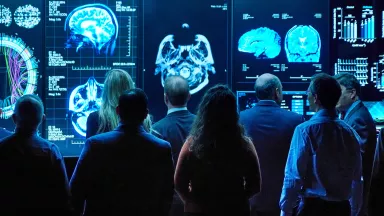Neuropsychiatric Disorders
Neuropsychiatry is a field in psychology that studies the relationships between behavior and the brain’s function. This specialty focuses on behavioral and cognitive conditions that can be traced to brain malfunction. The most common types of neuropsychiatric disorders include attention and cognitive deficit disorders (ADHD and CDDs), anxiety, depression, addiction, migraine headaches, seizures, eating disorders and uncontrolled anger. The commonality among diagnoses is a combination of problems with brain function, controlling emotions and mood.
Some people diagnosed with a neuropsychiatric disorder may experience cognitive impairment which can come and go, and can be mild, severe or anything in between. With mild impairment, there are changes in cognitive functions, but the individual can still do their everyday activities. Severe levels of impairment can lead to a point where the individual is incapable of living independently because of the inability to plan and carry out regular tasks and apply judgment.
Treatment and care for neuropsychiatric disorders depend upon the diagnosis. Disruptions in emotional, cognitive and social behavior are common in neurodegenerative disease, and they typically have an onset in mid-to-late life. In the early stages of progression, each neurodegenerative disease shows signs of degeneration of motor, cognitive, behavioral and emotional symptoms. Anxiety is a common symptom in multiple neurodegenerative diseases and commonly presents as a worried appearance, fearfulness (e.g., fear of being left alone), tension, restlessness and fidgeting.
Symptoms of depression are also common in neurodegenerative diseases. Some symptoms (like irritability and social isolation) may be more common than others (like diminished interest in activities) in depressed individuals. Signs of depression include sadness, crying spells and hopelessness. Apathy is another symptom of many neurodegenerative diseases, with symptoms including a lack of initiative and motivation, and a lack of interest in pursuing goal-directed activities.
As many neuropsychiatric disorders progress, the ability to self-monitor, control impulses and regulate emotions diminishes, becoming dysregulated, inappropriate and error-prone. In social contexts, these deficits lead to poor maintenance of social boundaries and violations of social norms.
To explore the various types of neurological disorders, please see the menu to the left. There you will find detailed descriptions of each condition, as well as prevention, symptoms, screening tools and treatment options. Education combined with ongoing work with a professional care team can empower individuals with disorders as well as their families and caregivers.




